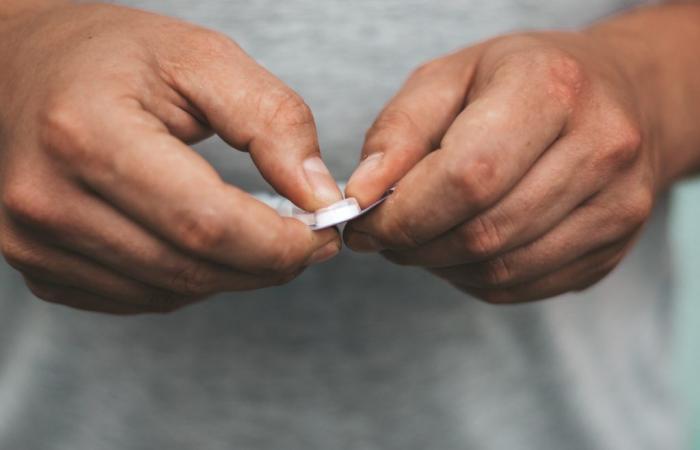Contraception is crucial for family planning because it allows individuals to choose if and when to conceive and how many children they wish to have. However, today, for men, contraceptive options remain limited to condoms or invasive and permanent vasectomy. There are currently no effective oral contraceptives for men. New approaches to male contraception are therefore needed, but sperm development is such a complex process that it remains difficult to identify which stages to target, safely and effectively.
Although research is ongoing into hormonal approaches to male contraception, some with promising results, none have been approved for clinical use. Non-hormonal targets offer a promising avenue with a lower risk of side effects.
An inhibitor that targets a protein essential for male fertility
This new approach is based on an inhibitor that targets the STK33 kinase – a protein essential for male fertility in humans – as in mice – effectively induces reversible infertility, here in male mice. The molecule also does not cause any toxicity or other adverse effects on reproductive function.
Homozygous serine/threonine kinase 33, also called STK33, is essential for male fertility. Previous research has suggested that mutations in STK33, in mice and humans, cause infertility due to defective sperm motility and morphology, but without causing other significant health problems. The researchers therefore hypothesized that STK33 could be a viable target for male contraception.
The study therefore sought to identify specific inhibitors of STK33 by reviewing a collection of several billion compounds. After an initial screening of potent STK33 inhibitors, the team selected one of the most promising compounds – CDD-2807.
- This compound in fact reduces fertility in vivo in male mice;
- CDD-2807 does not induce any toxicity, effectively crosses the blood-testicular barrier, does not accumulate in the brain and indeed produces a contraceptive effect without modifying the size of the testicles;
- The contraceptive effects of the inhibitor are reversible: the mice regain their fertility shortly after stopping treatment.
“Any candidate contraceptive drug must undergo extensive testing for efficacy and exclude adverse effects on hormone levels, overall reproductive function and impact on offspring.”. There is therefore a long way to go before this contraceptive can be used routinely.
However, these results highlight the potential of the STK33 target and open a promising avenue for the development of non-hormonal and reversible male contraceptives






